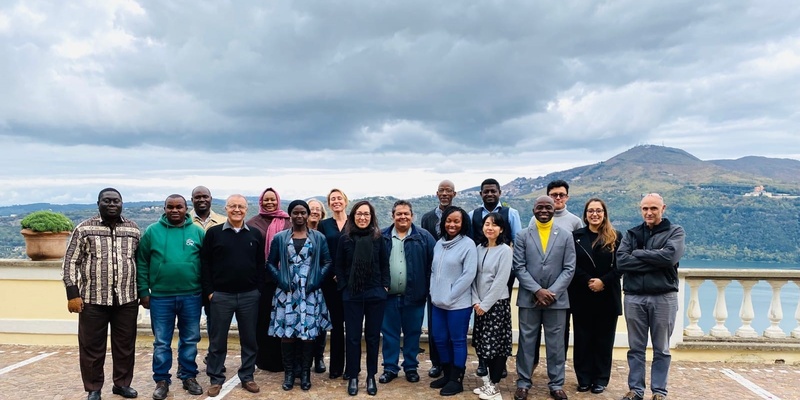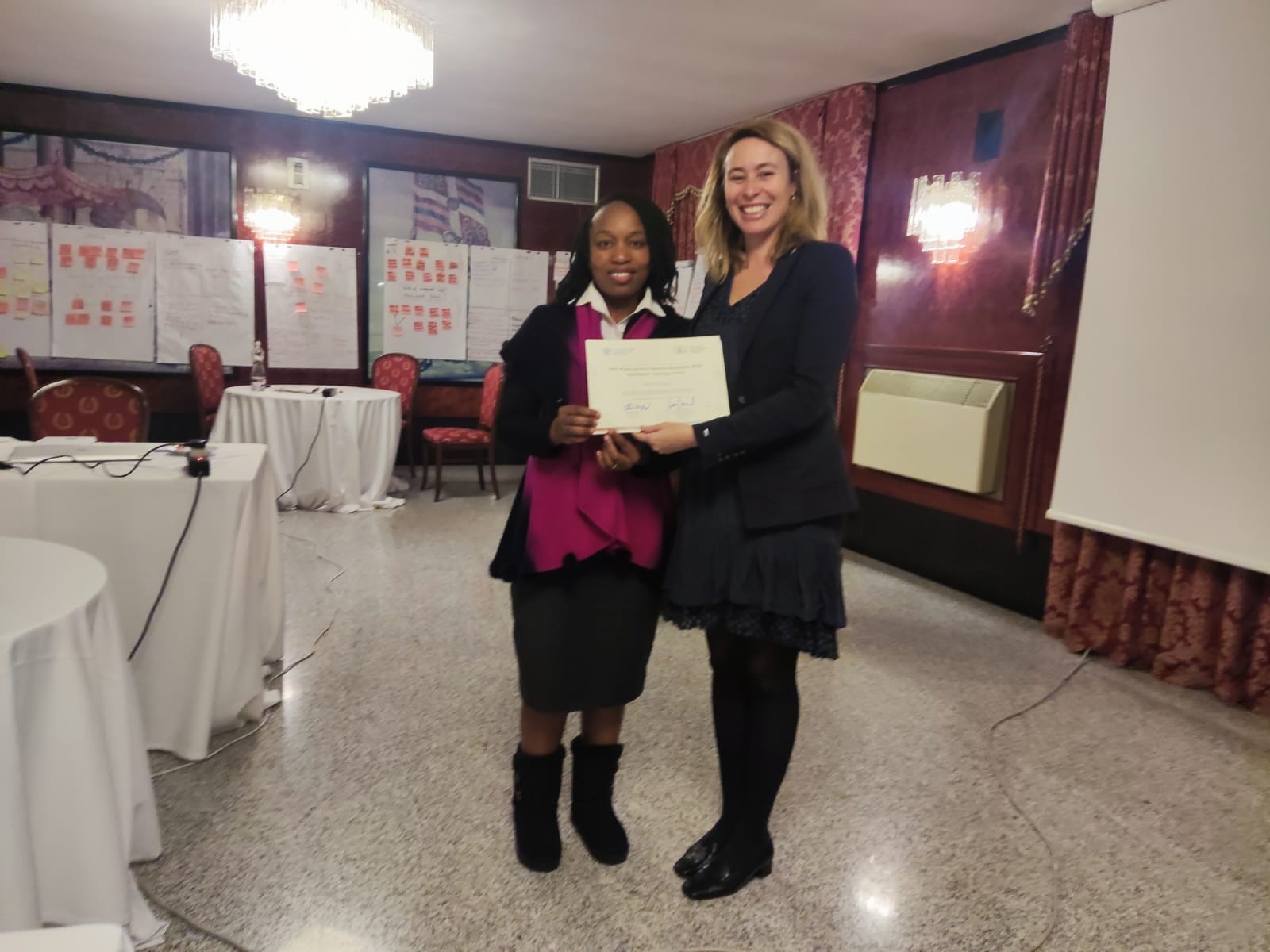IPPC Secretariat held training for facilitators in Phytosanitary Capacity Evaluation
Posted on Wed, 14 Dec 2022, 12:45

Rome, 13 December 2022. The IPPC Secretariate held the face-to-face portion of the 2022 Phytosanitary Capacity Evaluation (PCE) facilitator training course in Castel Gandolfo, south of Rome, from 28 November to 7 December 2022. Nine trainees from eight countries participated in the 10-day face-to-face course, which was delivered as part of the Strengthening Food Control and Phytosanitary Capacities and Governance (GCP/GLO/949/EC) project. This project is expected to provide funding that will allow as many as nine countries from the Common Market for Eastern and Southern Africa (COMESA) to implement PCEs within the next year.
Prior to the recent in-person training, the PCE facilitator trainees completed several e-learning courses, including one on results-based management and the four newly developed IPPC e-learning courses. The four instructors for the course, Sarah Brunel, Fitzroy White, Francisco Gutierrez and Mekki Chouibani, are experienced PCE facilitators who guided the trainees through the PCE process and introduced the technical aspects of the PCE modules and the strategic planning process. Interactive activities using group exercises and role-play activities based on a fictional country, Antigonia, were used to reinforce the learning.
The training course highlighted that the PCE is a self-directed process that is used by national plant protection organization (NPPO) to evaluate their national phytosanitary systems and develop a strategic plan in collaboration with key stakeholders. The role of the PCE facilitator is to guide the NPPO as they work through the questions in the PCE Tool and evaluate their strengths, weaknesses and priority areas for improvement. The PCE process often leads a country to review and update its national phytosanitary legislation in collaboration with national and FAO lawyers. ''Apart from building my capacity with relevant tools to successfully conduct a PCE, participating in the training program has empowered me with other career enhancing skills such as; organisation, communication, presentation and teamwork.'' said Justina Chivanga, one of the trainees from Zambia.
On their last day in Italy, the trainees received a certificate attesting that they participated in the training course. The training provided technical information and strategic planning skills that participants will take home and apply to strengthen phytosanitary systems in their own countries. However, before trainees are considered certified PCE facilitators, they must work successfully alongside an experienced PCE facilitator to deliver a PCE process in a country, as per the procedure for PCE facilitator certification.


